In front of Friends Center in Philadelphia—home to a number of peace and justice organizations—visitors will find Sylvia Shaw Judson’s magnificent statue of Mary Dyer, who was hanged on Boston Common in 1660 for challenging religious intolerance. Non-Friends coming by might get the impression that Quakers are about individuals doing the right thing, even when severely tested. What they might miss is that Mary Dyer was part of a collective of Friends bent on a common task: to unhinge the Puritan theocracy in Massachusetts through a campaign of nonviolent direct action.
Mary Dyer and her companions succeeded despite furious resistance by Puritan leaders that included whipping at the stocks, imprisonment, cropping the ears, and more hangings. It is one of many times in Quaker history when individual Quaker action couldn’t have made a difference but collective action could.
This is one of those times. Today, instead of resisting theocracy, many of us feel called to unhinge the system that puts profit over people and the planet, and fuels climate change and environmental injustice. Reducing our carbon footprint as individual Friends is to act with integrity, but this will not stop the hundreds of billions of dollars invested in climate destruction. The good news is that the spirit of Mary Dyer and her Friends lives on; it’s possible for modern Friends to unite to make a difference.
Today, Earth Quaker Action Team (EQAT, pronounced “equate”) is taking on Vanguard, one of the largest asset managers in the world with $8.1 trillion in assets under management. Many Friends have trusted Vanguard to safeguard their financial security without knowing that Vanguard is one of the two largest investors in coal, oil, and natural gas. These investments threaten our security in the ultimate sense by destroying God’s creation, which we all rely on. They are not even financially prudent in the long run, as more and more people begin to recognize that getting off fossil fuels is inevitable and that many assets are likely to be stranded.
Along with partners from around the world, EQAT aims to get Vanguard to use its leverage to support climate action, not continued destruction. There are numerous ways Vanguard can do this. The most immediate is to use its massive shareholder status to push for change within companies like Exxon, Chevron, Enbridge, and a host of others where Vanguard is one of the largest investors. Until now, Vanguard has one of the worst voting records on climate-related shareholder resolutions. In 2021, it voted for more than 98 percent of management-sponsored board members across climate-critical companies in the oil, gas, electric power, and financial services industries. The company could instead help climate champions join these boards to push for change. We need Vanguard to become a leader, not a laggard in the realm of shareholder engagement.
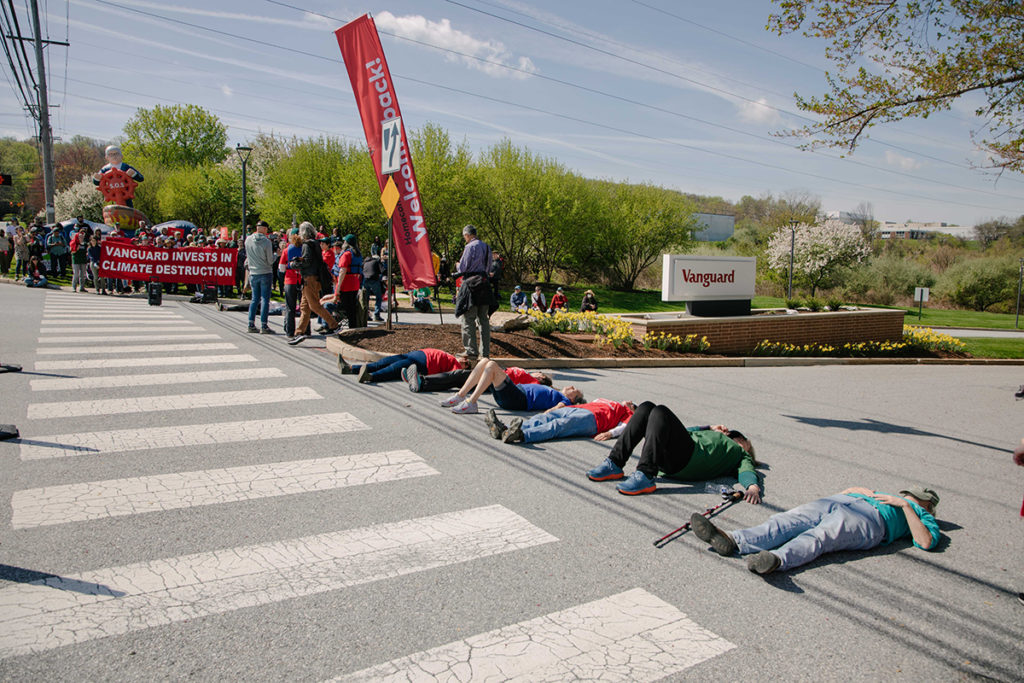
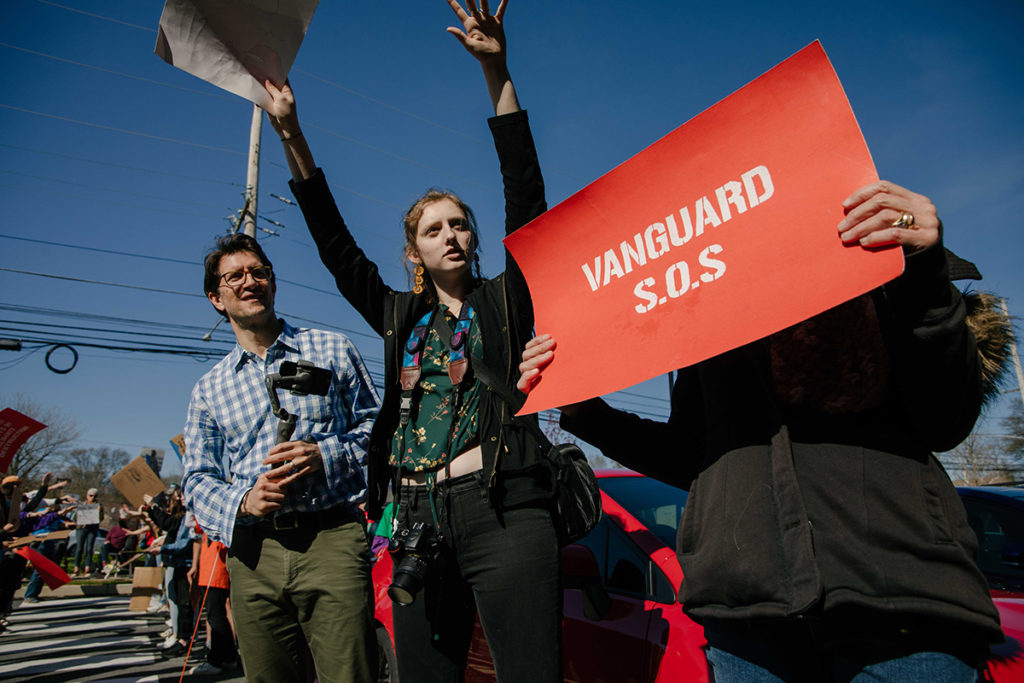
Upon hearing about Vanguard’s bad track record, many Friends have asked, “Where should I move my money?” This is an understandable question. Many organizations are now asking people to divest from fossil fuels as a way to undermine their power and assert our own integrity. Some of us have done this ourselves or asked our meetings to divest in this way. EQAT itself asked Friends to move their money out of PNC Bank during our first campaign to get that bank to stop financing mountaintop removal coal mining. In this campaign, however, EQAT and our partners are using a different approach. Because Vanguard asserts that it is owned by its customers, we are asking customers to remain with the company, so we can collectively pressure it to change.
To return to the example of Mary Dyer and the community of Friends who challenged religious intolerance, they could have moved to Philadelphia to practice Quaker worship free of persecution, but instead they stayed and challenged the system from within. This choice was incredibly risky, but it gave them the chance to dramatically demonstrate their rejection of the status quo by refusing to go along with what was expected of them. The dynamic is clearly different for Vanguard customers, but the principle is the same. We are not expected to question too deeply what Vanguard does with our money. We are not expected to show up in person at their corporate headquarters or visit the sites of their destruction, something EQAT has been doing in southeastern Pennsylvania for the past five months. We are not expected to organize call-in days or letter-writing campaigns. Most importantly, we are not expected to think of our security as something intrinsically tied to the well-being of others, from the people living on the frontlines of environmental and climate destruction to the future generations who will live with the effects of our action or inaction.
We know from experience that even a small group can make a big impact when working together. EQAT began in 2010 with a living room full of Friends—not much to take on PNC, the seventh largest bank in the United States at the time. Most of us were already taking short showers and other measures to reduce our own climate impact, but we knew it wasn’t enough. We felt called to collective witness, drawing on the Quaker tradition of nonviolent direct action. Taking on a bank with Quaker roots and collectively pressuring it to stop financing the horrific practice of mountaintop removal coal mining gave us many opportunities to experience the truth that together we are much more than the sum of our parts.
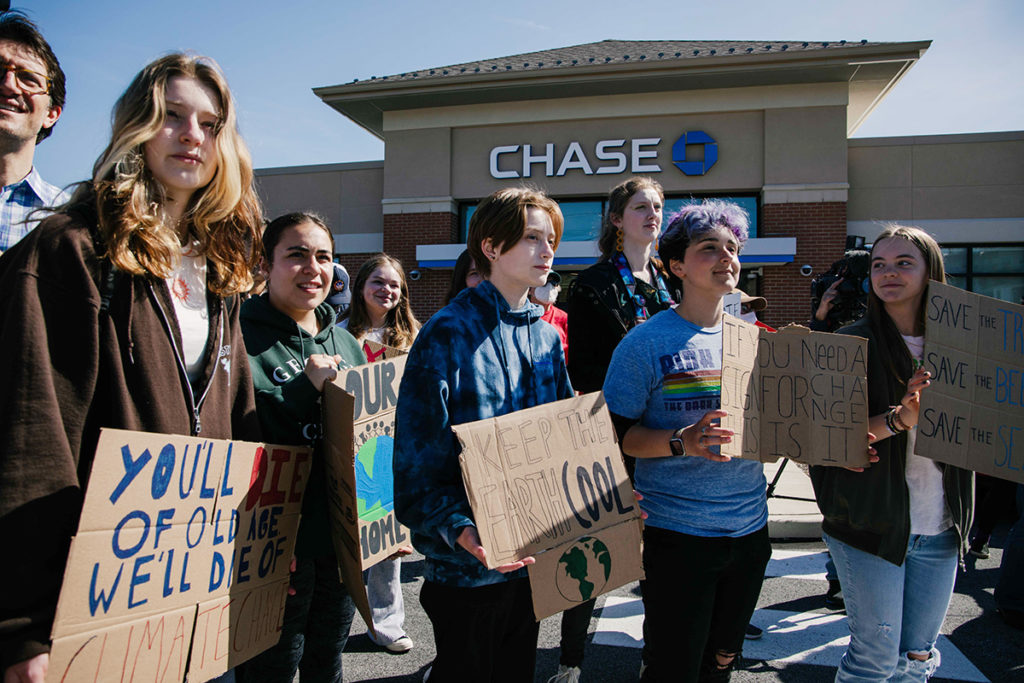
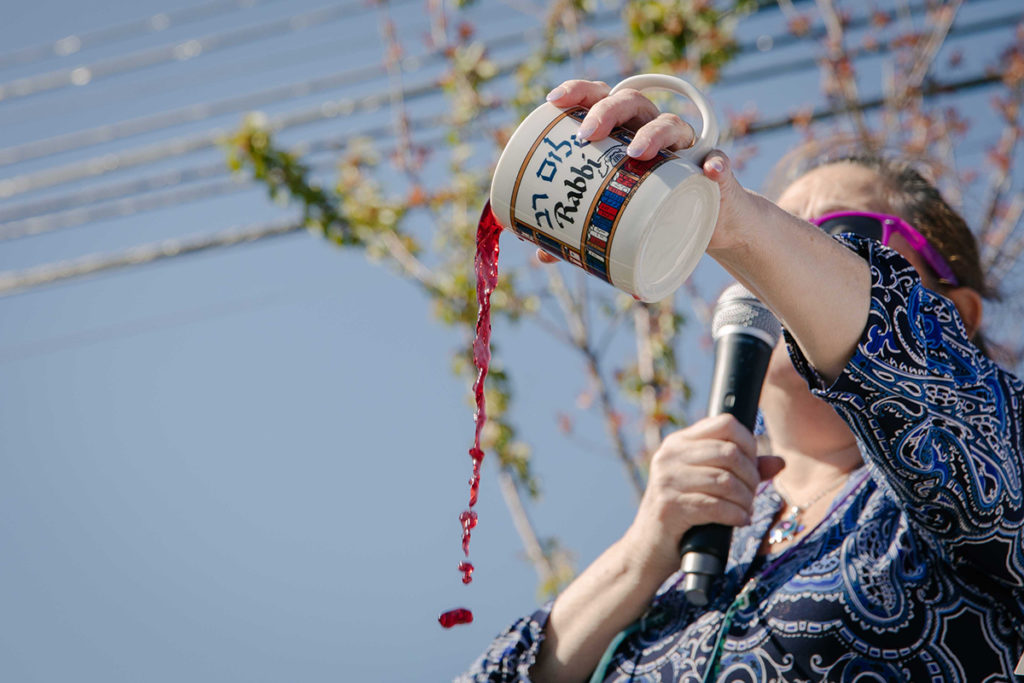
Way opened for others to join, from area college students to Quakers in other states. In 2013, we shut down PNC’s annual shareholder meeting in Pittsburgh, Pennsylvania, with silent prayer and singing. In 2014, PNC moved its shareholder meeting to Tampa, Florida, where unbeknownst to the company, there was a group of young Friends who felt led to be part of the campaign. With their help, we shut down the shareholder meeting once again. By the end of that year, we were able to pull off over 30 nonviolent actions in one day at bank branches in 13 states, with the Florida young Friends playing key roles. At that point, the bank gave in and committed to pulling its money out of mountaintop removal coal mining.
Since then, going after the money enabling climate destruction has become a key strategy of the climate movement. Over 30 banks are now using their influence to pressure corporate clients to get out of coal altogether. In fact, it was through its work on coal that the Australian-based Sunrise Project started taking on asset managers, first BlackRock and now Vanguard. EQAT was in the process of discerning an end to our Power Local Green Jobs campaign when we got the call asking us to join the Vanguard campaign as the local direct action anchor. We were chosen because, like Vanguard, we are based in the Philadelphia area, and because of our earlier experience moving a $4 billion-a-year bank. The timing of Sunrise’s invitation felt like another experience of way opening.
Since saying yes, we have heard from Friends around the United States eager to be involved. We are heartened by this enthusiasm and discerning how best to channel it. Friends in or near southeastern Pennsylvania are encouraged to join us in nonviolent direct action, such as the five-day walk we recently organized from polluting facilities in Chester, Pennsylvania, to Vanguard’s Malvern headquarters.
Until we discern a strategic way for those at a distance to take such action, we are encouraging them to sign the FixMyFunds petition organized by our friends at the Sunrise Project, which will keep them informed of other opportunities to phone, write, or otherwise reach a host of asset managers, including Vanguard. For example, in solidarity with EQAT’s walk, FixMyFunds spurred nearly 1,300 people to fax their asset managers, asking for action to prevent climate chaos.
One thing we already know is that customers will have more influence acting together. That’s why our customer interest form asks people to confide (only to Eileen) how much they have invested with Vanguard. At the time of this writing, our collective assets exceed $65 million. We expect that number to continue to grow. That means that when Friends write or call Vanguard and say that they are part of a group that collectively has $65 million (or more) invested through Vanguard, we will have a much greater impact than any one of us would have alone. If Vanguard is not swayed by our sustained collective pressure, and we ultimately discern that we must remove our investments, again that action will have a greater impact if more people take it together.
There will also be many roles for those who are not Vanguard customers, including the continued use of nonviolent direct action. Whether we live next to a Vanguard-funded incinerator or pipeline, or far from one; whether we have a retirement account with Vanguard, or are barely making ends meet; we all have a stake in the future Vanguard investments are destroying. At our Earth Day action at Vanguard headquarters, which concluded the walk, we had 150 people: from college students to octogenarians. We worshiped; we sang; and we read statements highlighting the destructive effects of Vanguard investments: all activities that are more powerful when done as a group.
Many generations of Friends have known this truth: that Spirit calls us to act together: from those who refused to pay tithes to the Church of England to those who refused to obey the Fugitive Slave Act, or the draft. May we remember their courage and their cooperation with each other, as we take on the unjust powers of our time.


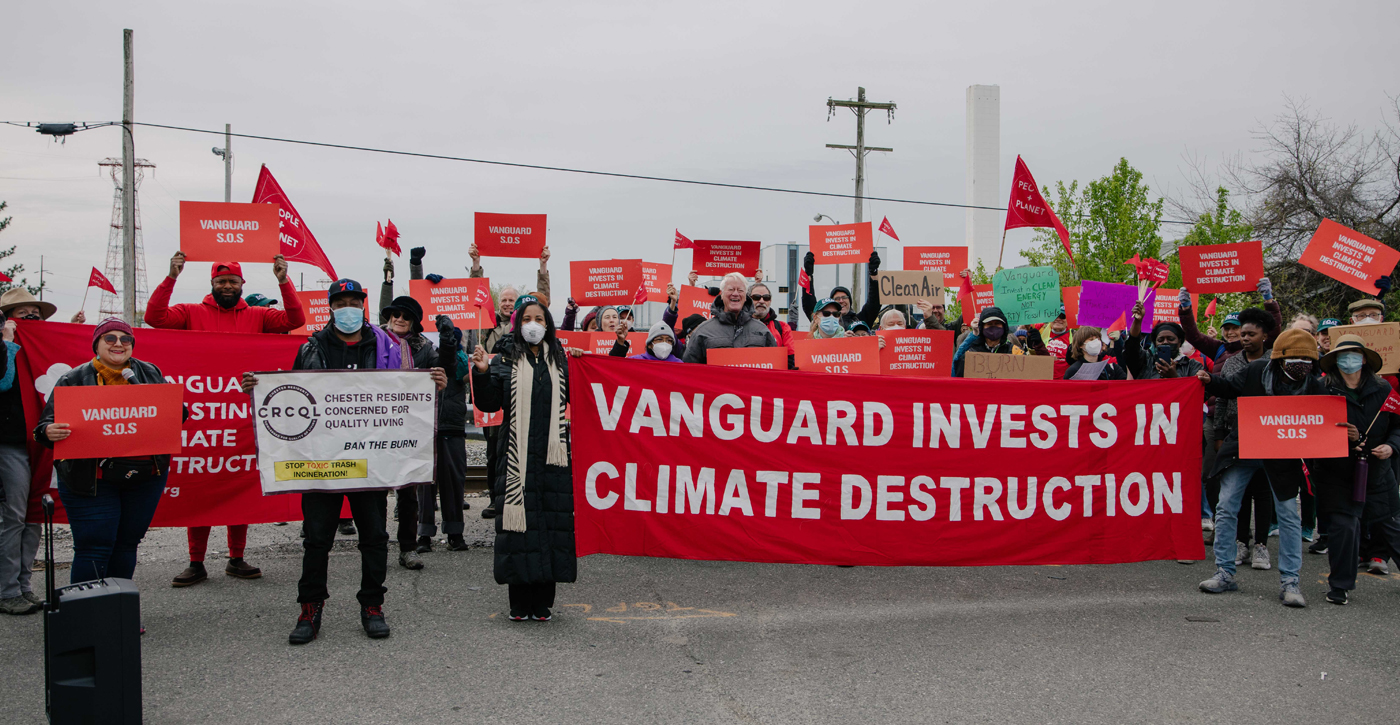
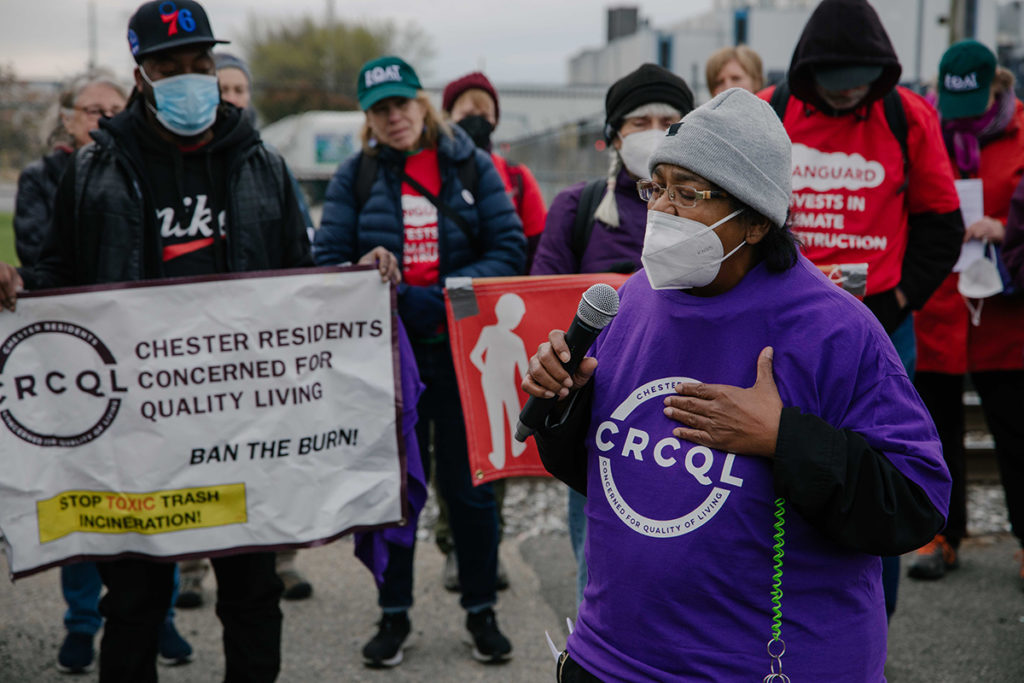
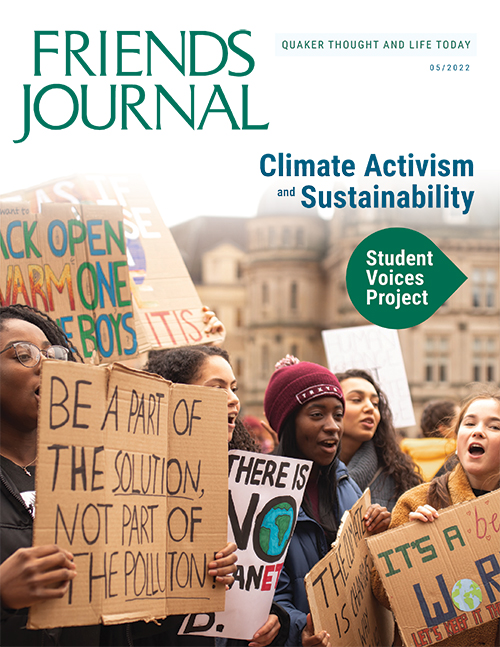
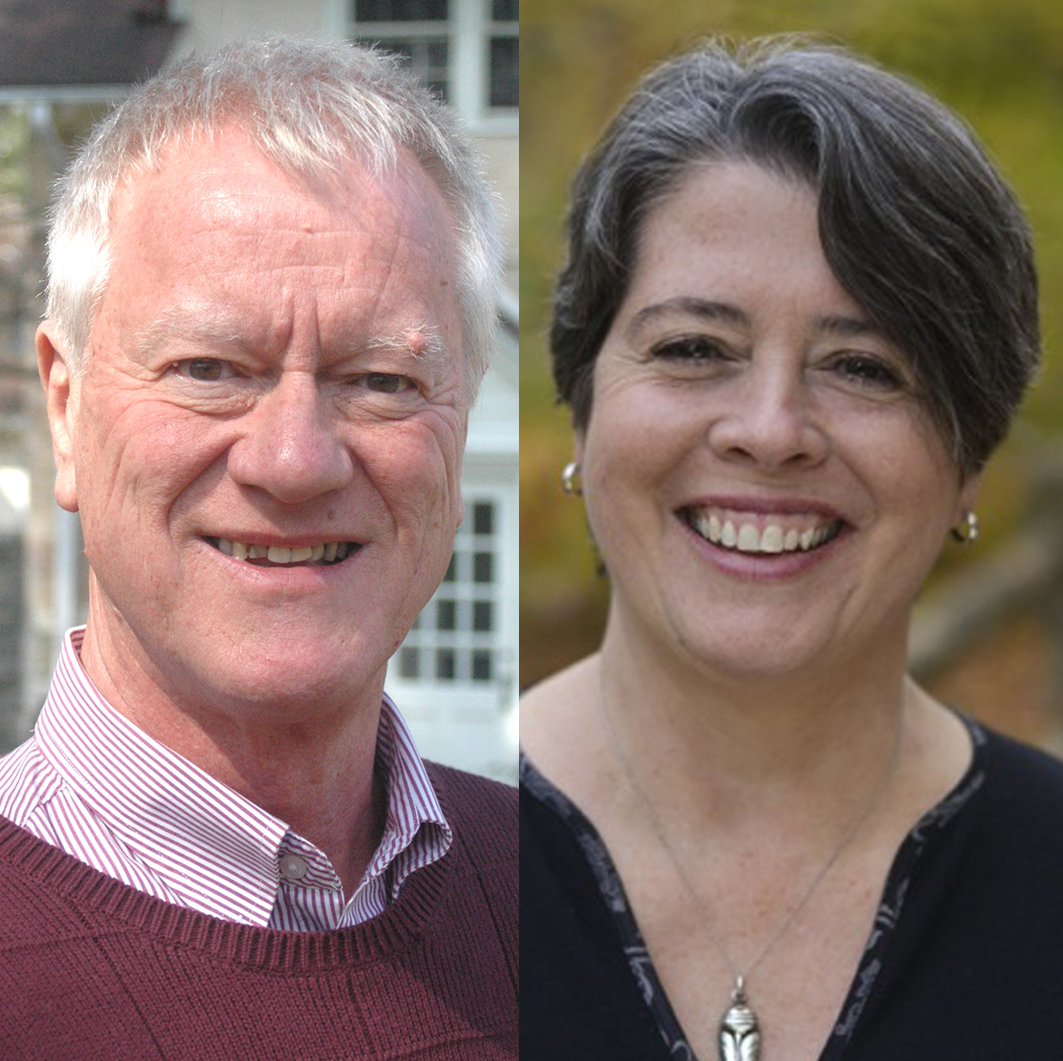

Comments on Friendsjournal.org may be used in the Forum of the print magazine and may be edited for length and clarity.